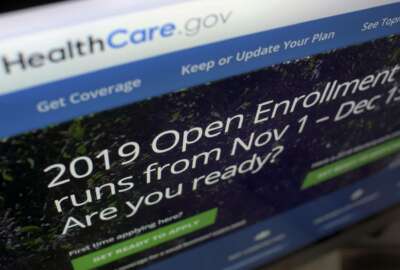
Confessions of a health plan hypocrite
Over the long Thanksgiving weekend Mike Causey visited with probably two dozen current or former feds, none of whom have made any change in their health care...
Over the long Thanksgiving weekend I visited with probably two dozen current or former feds. It was totally social — four coffees, two dinners, two lunches, a couple of emails and a chance meeting on the street. One of them works for the Drug Enforcement Administration, another is with the Agriculture Department. Several are retired from the Office of Personnel Management, Interior Department, DEA, the Department of Health and Human Services and the Smithsonian Institution. One is the widow of a fed.
When I asked them about the ongoing health insurance open season two were only vaguely aware of it. Others were more up to speed. But they all had one thing in common — none of them has made any change in their coverage in the last five to seven years. One said he’d been in the same plan since retiring in 2002.
I started to encourage and/or warn each of them about the pitfalls of staying in the same health plan year after year. What happens, such as in the Federal Employees Health Benefits Program, is that many retirees and older workers with the most health problems remain in the same plan while younger, generally healthier workers shop around.
The result is that after a time some health plans, many of them excellent, suffer from what folks in the insurance business call “adverse selection.” Most of their clients are so-called “heavy users” who, even if they have Medicare, still cost the plans more money than younger workers. Over time those plans have to raise their premiums.
Live by example
Experts like Walton Francis say that more than half the people in the FEHBP would be better off, financially and in coverage, if they would shop around during the open season which ends Dec. 10. Francis, author of the Washington “Consumers Checkbook Guide to Health Plans for Federal Employees,” said many people can save $1,000 to $2,000 in premiums next year by moving to a comparable but less expensive health plan.
In some cases, Francis said, they can get equal or even better coverage while paying lower premiums and also in reduced out-of-pocket costs. He also said that many, many people can actually make money by investing in certain plans which give you a health savings account.
Why didn’t I tell my Thanksgiving feds the error of their ways, the folly of their inertia? Why didn’t I tell them what they were losing by doing nothing year-after-year?
In short, my anti-hypocrite filter kicked in. I realized that I had missed the benefits open season here at my office this year. I didn’t renew my flexible spending account. I didn’t even compare plans, benefits and premiums although they have changed. The company did a good job of offering us excellent benefits, and explaining them to us. I simply forgot and did nothing.
I was so busy telling — with backup from a genuine expert — what you should be doing that I didn’t take time to do what I should have been doing, although I had plenty of notice. Luckily my current plan is a good one, and premiums are reasonable. But I coulda, maybe shoulda done more, as in at least make an effort.
Meantime Walt Francis returns tomorrow as a guest on our Your Turn radio show at 10 a.m. EDT. We have a batch of questions ready for him but others can be sent before showtime to mcausey@federalnewsnetwork.com. Listen at www.federalnewsnetwork.com or on 1500 AM in the Washington, D.C. area. Shows are archived online.
Nearly Useless Factoid
By Amelia Brust
Sea turtles have an internal GPS that uses Earth’s magnetic field to navigate across the ocean and to specific coastlines where they lay their eggs.
Source: Ocean Conservancy
Copyright © 2025 Federal News Network. All rights reserved. This website is not intended for users located within the European Economic Area.
Mike Causey is senior correspondent for Federal News Network and writes his daily Federal Report column on federal employees’ pay, benefits and retirement.
Follow @mcauseyWFED





